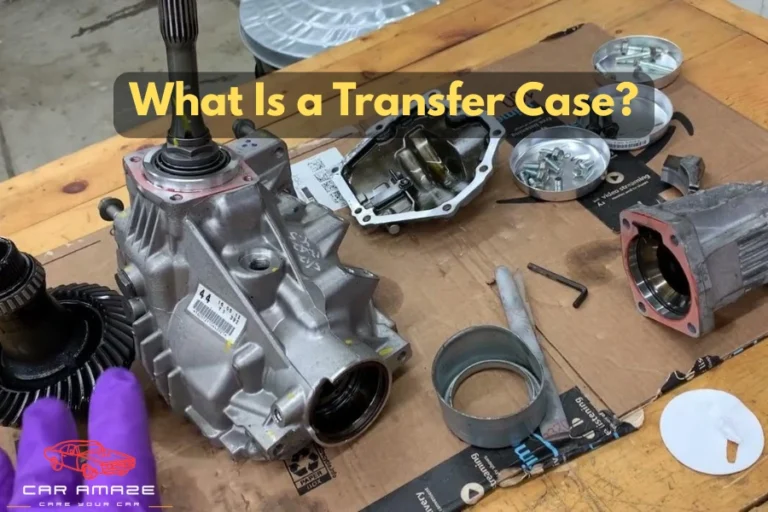Car Shaking While Driving: Causes, Fixes, and Prevention
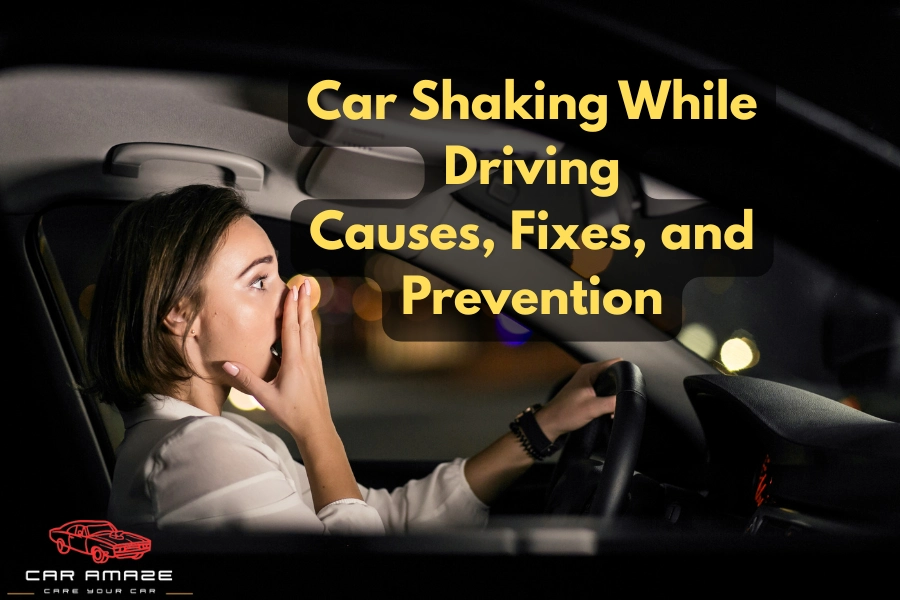
Have you ever felt the car shaking while driving? It is a very scary, confusing, and dangerous situation. If a car is shaking while driving, something is wrong with its tires, brakes, engine, or suspension. The good news? The car shaking is a warning sign, and you can fix it in the early stages. In this guide, I am explaining the potential causes and fixing techniques for car shaking while driving, and preventive measures.
Table of contents
- Common Causes of Car Shaking While Driving
- Is It Safe to Drive If Your Car Is Shaking?
- How to Prevent Car Shaking While Driving in the Future
- Conclusion
- FAQs
Common Causes of Car Shaking While Driving
Let’s start with the common causes of the car shaking while driving at high speed or low speed. Here I am going to discuss:
- Why is your car shaking while driving?
- How to fix it
- How to prevent it
1. Car Shake Due to Tire Problems
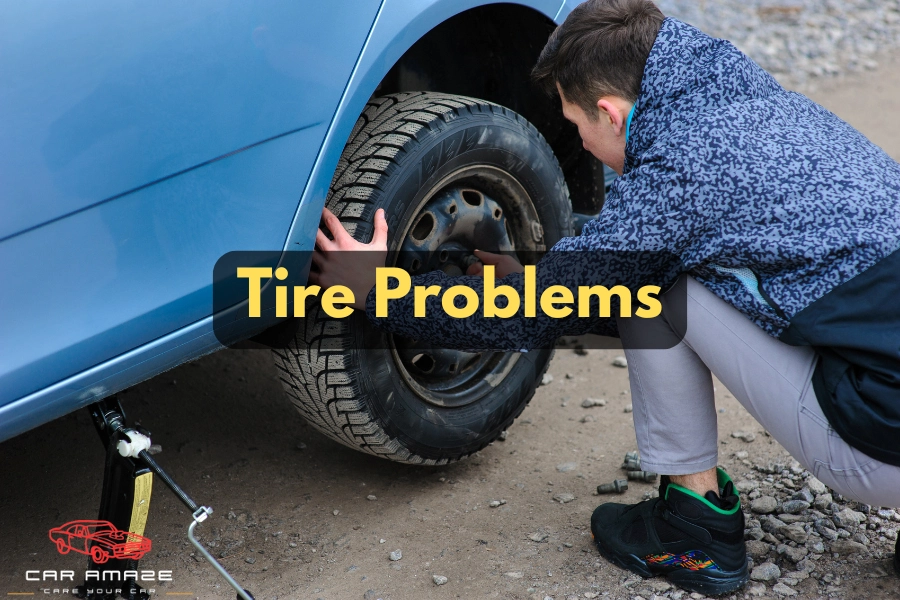
When your car starts shaking at idle, the first thing to check is the tires. If tires have uneven tread, are worn out, or are underinflated, they can cause strong vibrations. Here are some quick checks and fixes:
- Check tire pressure and inflate them to the recommended level.
- Rotate your tires if the tread is uneven.
- Replace old or bald tires.
As you know, damage to tires can cause a car to shake as well as lead to serious accidents. Make sure you follow these tips for tires:
- Inspect tires regularly.
- Keep tire pressure correct.
- Replace tires when the tread is worn down.
2. Car Shaking While Driving Due to Unbalanced Wheels
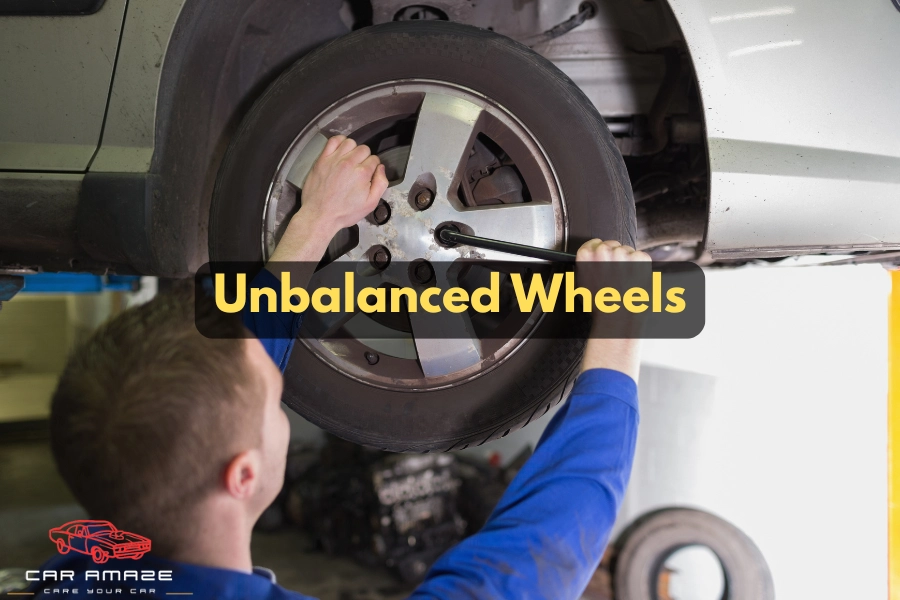
Another common reason for a car shaking while driving at high or low speeds is unbalanced wheels. If the wheels are unbalanced, the car’s weight will not be evenly distributed, and it will start shaking. So, if this is the reason for the car shaking, go to a tire shop to fix the wheel balance issue. Here are some tips to prevent unbalanced wheel issues:
- Balance wheels every time you get new tires.
- Do regular wheel check-ups during service.
3. Damaged or Bent Wheels Cause the Car to Shake
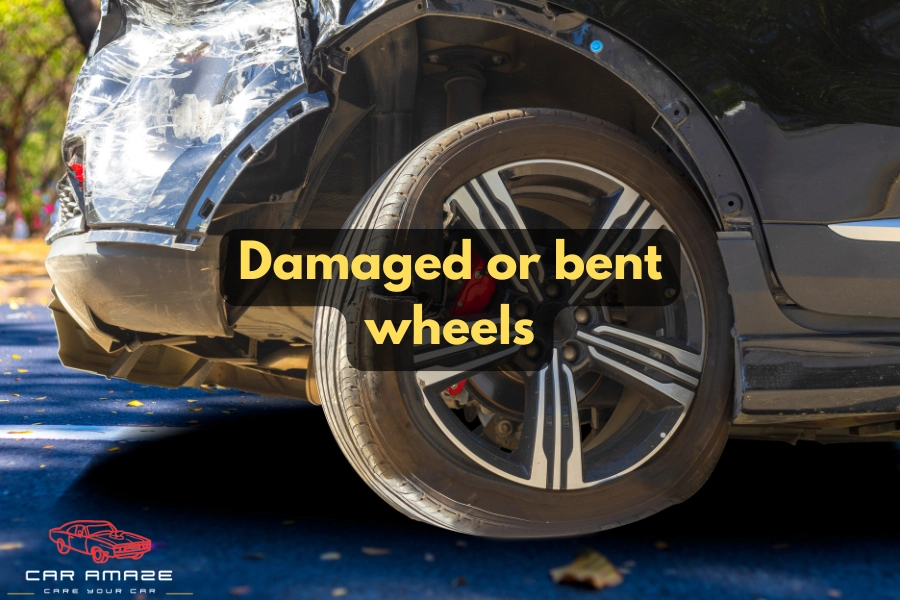
Is your car wheel bent or cracked? If yes, this is one of the causes of car shaking while driving. The tires get damaged or bent when they get hot from a pothole or curb. To fix this cause of car shake, repair the tire if the damage is less, or replace it if the damage is more. Here are some tips to keep tires safe:
- Avoid potholes and rough roads when possible.
- Drive slowly over speed bumps.
4. Brake Problems
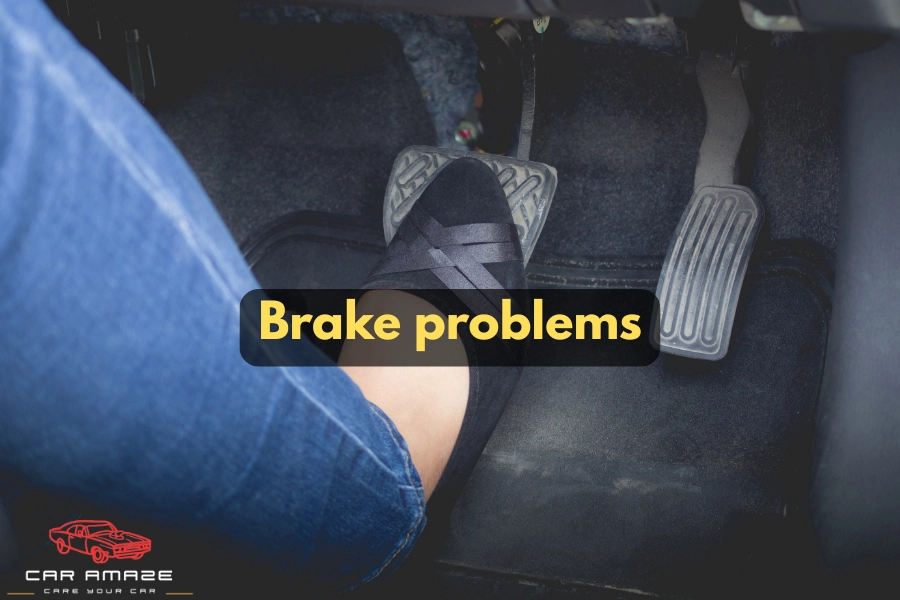
If your car is shaking while driving, there might be a problem with the brake system. Damaged brake pads or other brake components can cause uneven braking. To fix this cause:
- Replace brake pads if worn out.
- Check the brake system for loose or broken parts.
Follow these tips to stay away from brake and car shake issues:
- Get brakes checked every 6 months.
- Doing a break inspection for salvage cars is also important.
- Don’t drive with worn-out brake pads.
5. Warped Brake Rotors Can Cause Car Shaking
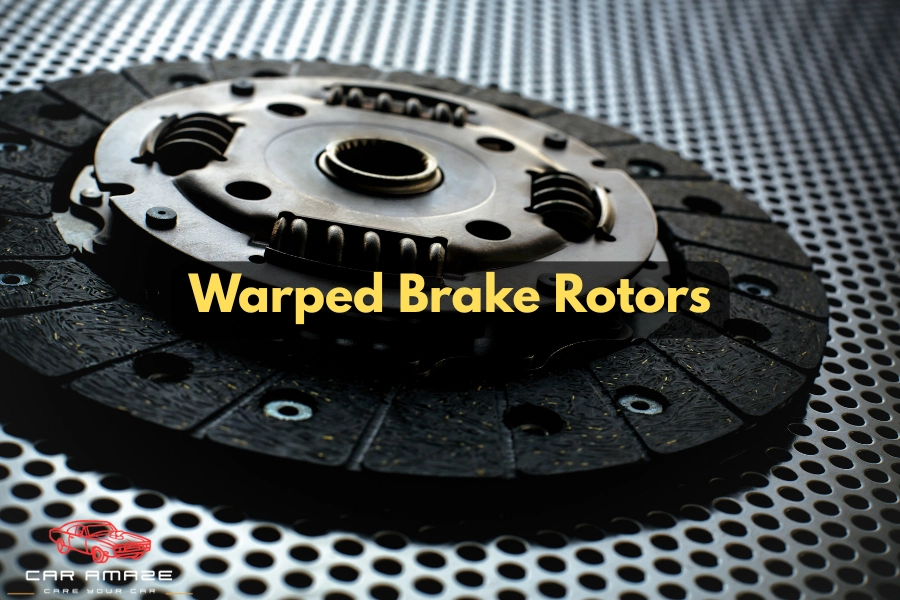
The role of brake rotors is to help stop your car. If they are warped (bent or uneven), your steering wheel or car may shake when braking. The only way to fix this problem is resurfacing or replacing warped rotors. If you do not want this problem in the future, follow these tips:
- Do not drive with overheated brakes.
- Replace rotors when they are too thin or old.
6. Car Shaking While Driving Due to Engine Problems
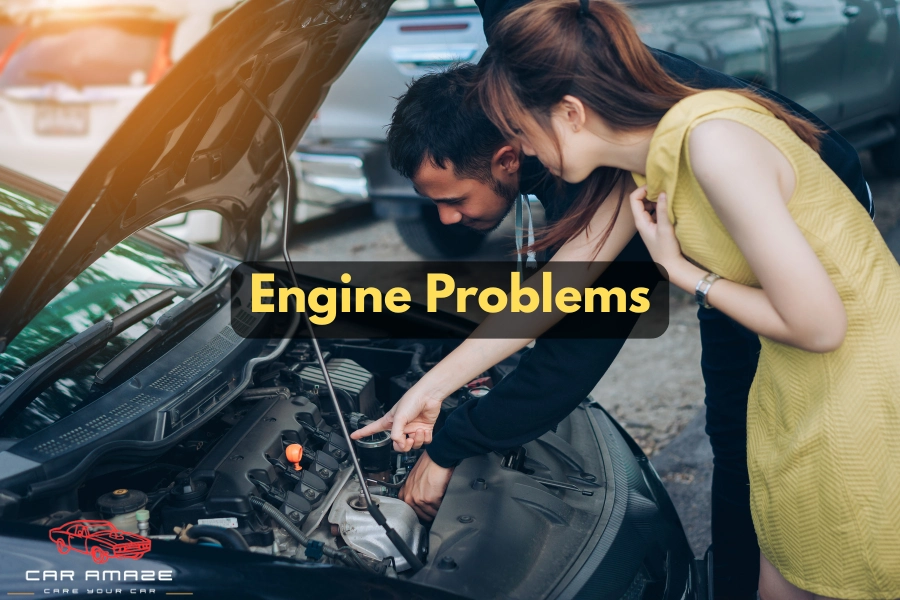
Sometimes problems in the engine may also cause your car to shake while driving. Some common issues, like fuel problems, dirty air filters, or car hesitation, can cause vibration in engines and make your car shake. Some common fixes for engine problems are:
- Clean or replace air filters.
- Check the fuel system.
- Repair engine misfires.
Follow these tips to keep your engine in top condition and prevent car shaking:
- Get regular engine tune-ups.
- Use good-quality fuel.
7. Faulty Spark Plugs
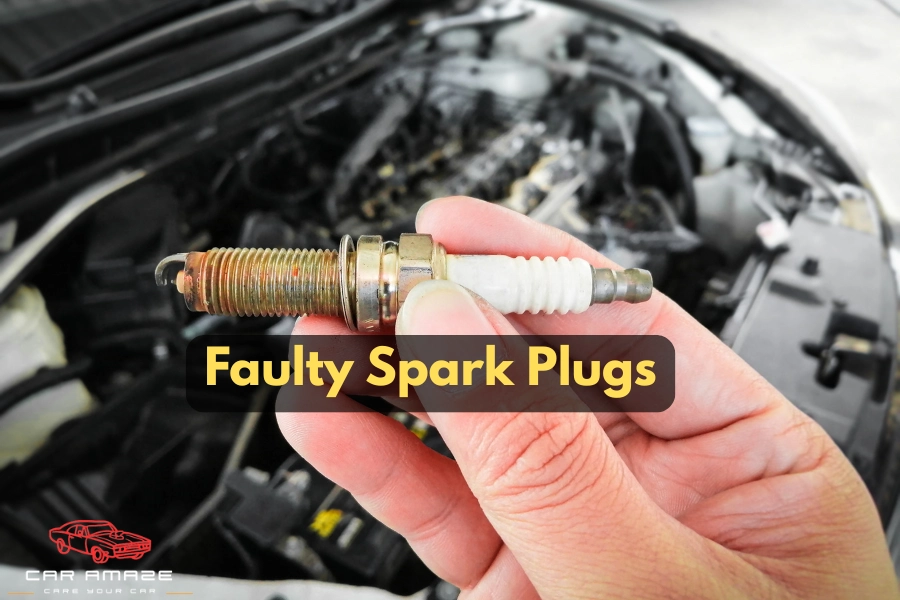
The main role of a spark plug is to help the engine start up. If the spark plug becomes old or damaged, your car engine will misfire and make your car shake.
So, in that case, you should replace the spark plug as well as check the ignition coils for damage, too. One of the best ways to stay away from this problem is to change spark plugs as recommended (usually every 30,000 miles).
8. Car Vibrating Due to Transmission Issues
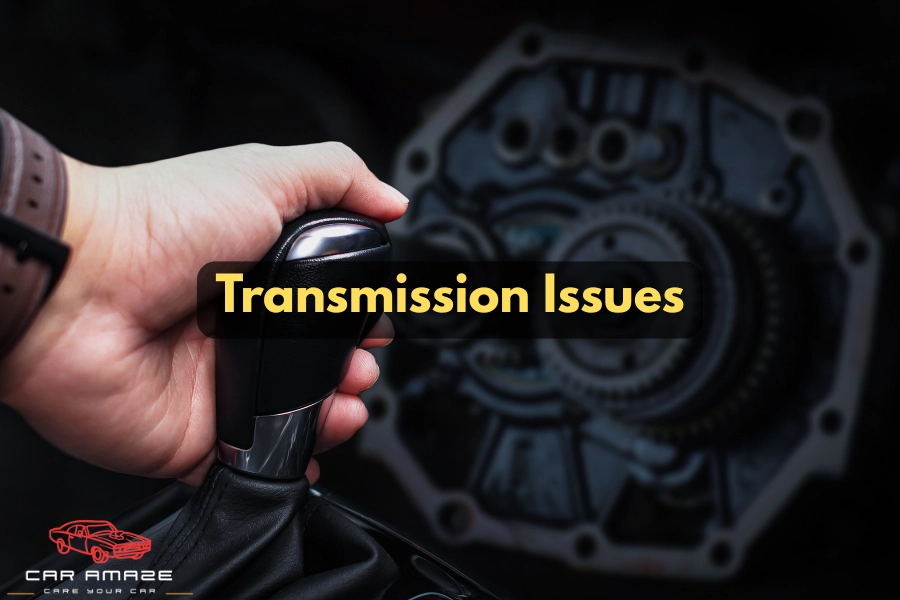
Other than the engine, the faulty transmission can also cause shaking issues. You may feel a slight car shake when changing gears or accelerating. The best fixes for transmission issues are:
- Check transmission fluid levels and refill if they’re low.
- Repair or replace worn transmission mounts.
- Service the engine if there are warning lights.
- Change transmission fluid regularly.
- Do not ignore small jerks or warning signs.
9. Bad Motor Mounts
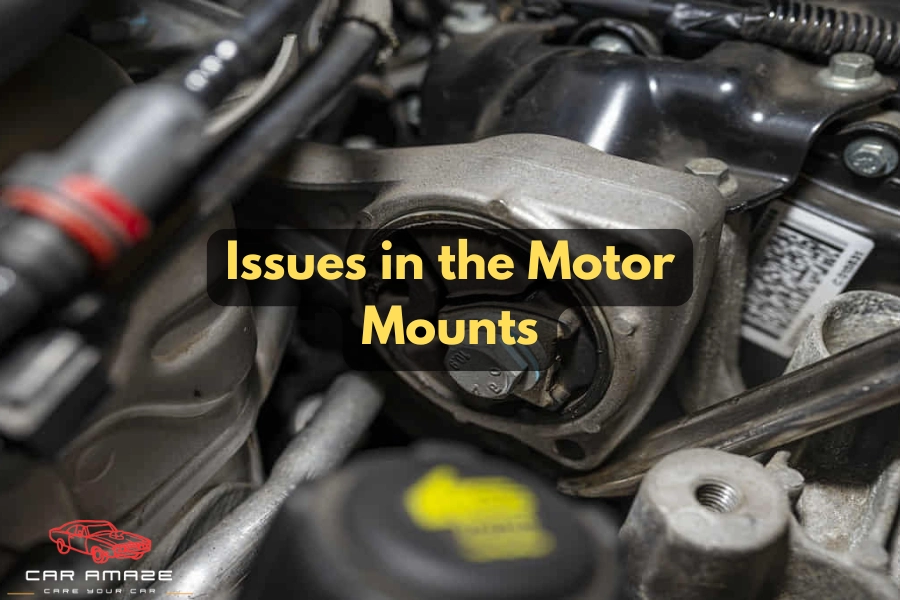
The motor mounts play a key role in holding the engine in place. If they are broken or weak, the engine will shake, and as a result, you will experience the car shaking while driving. If the motor mounts of your engine are damaged, replace the motor mounts instantly. Here are some preventive measures:
- Get mounts inspected during engine service.
- Avoid aggressive driving that stresses the engine.
10. Axle Problems
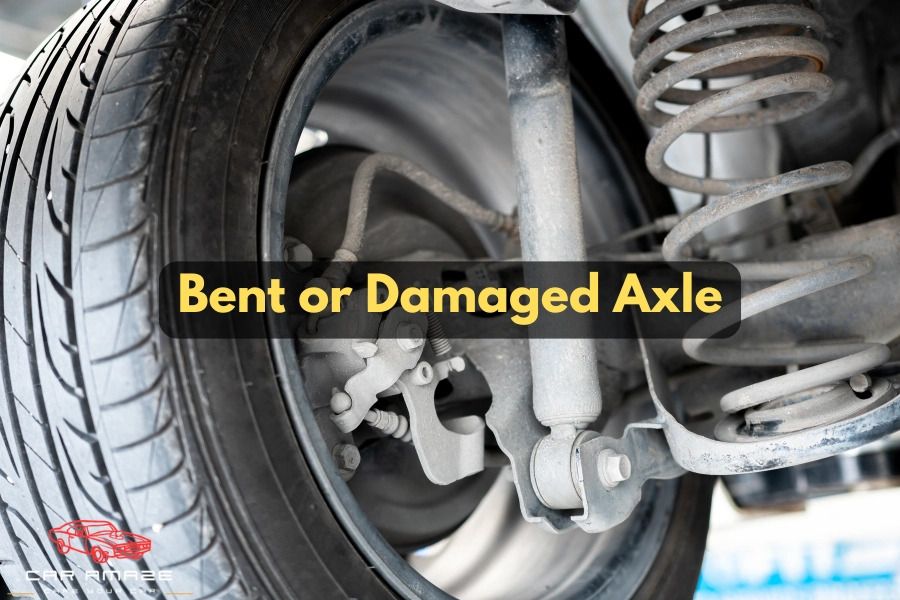
A bent or damaged axle can cause vibrations and car shaking while driving. This usually happens after an accident or if you hit something hard on the road. You can either repair or replace the damaged axle, depending on the extent of damage. Some preventive measures are the following:
- Drive carefully over bumps.
- Avoid curbs and deep potholes.
11. Car Shaking While Driving Due to Driveshaft Issues
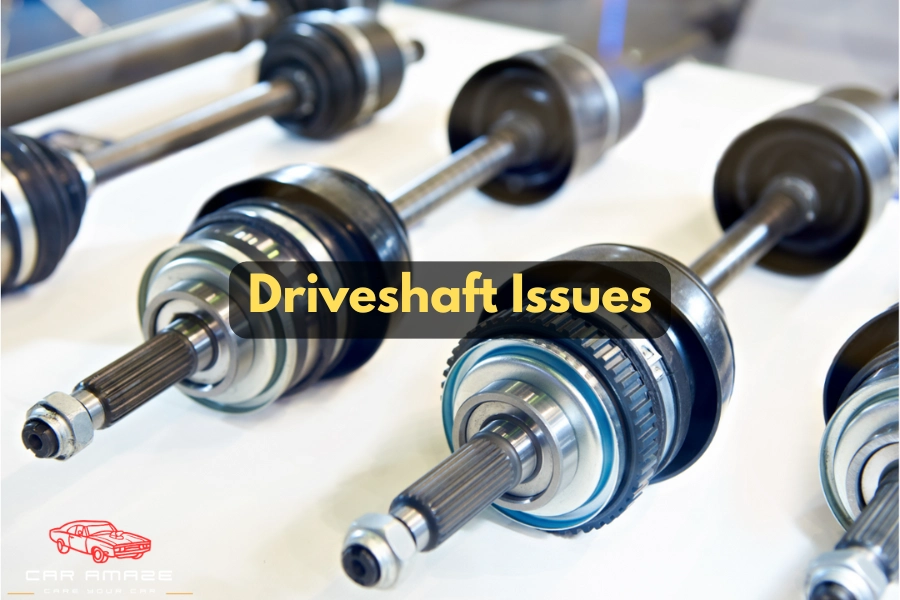
The role of the driveshaft is to transform the power from the engine to the wheels. If it is damaged, bent, or worn, your car will shake while driving at high and even low speeds. Some tips to stay safe from this situation are the following:
- Service drivetrain parts regularly.
- Listen for clunking sounds that may signal damage.
12. Bad Wheel Bearings
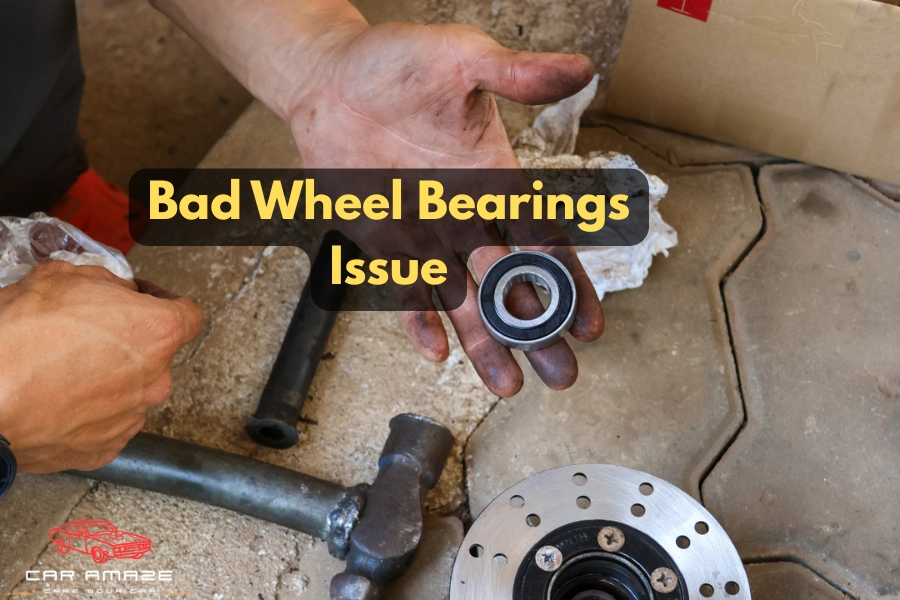
If the wheel bearings are perfect, the wheels spin smoothly. Otherwise, wheel spinning causes vibrations and car shaking issues in your car. The only solution to this problem is replacing the wheel bearings. Some helpful tips regarding wheel bearing and car shake are listed below:
- Get wheel bearings checked during service.
- Do not drive with worn-out bearings, as they can break suddenly.
13. Worn Suspension Components
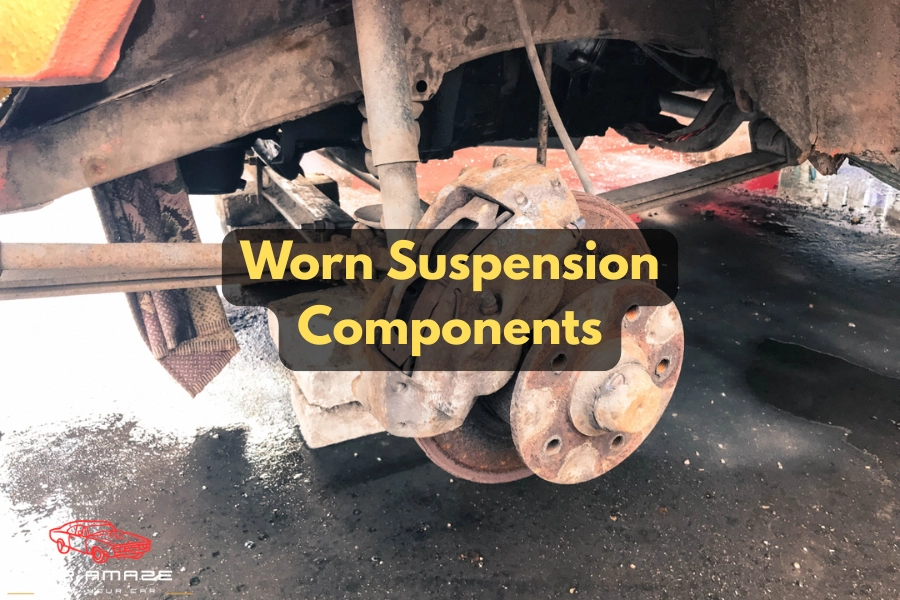
The suspension system keeps your car stable, especially on rough roads. However, if suspension parts like shocks or struts are worn, your car may bounce and shake. Replacing the suspension is the preferred solution in this scenario. You must:
- Inspect suspension during regular maintenance.
- Replace shocks/struts every 50,000 miles (or as recommended).
14. Car Shaking While Driving Due to Steering System Problems
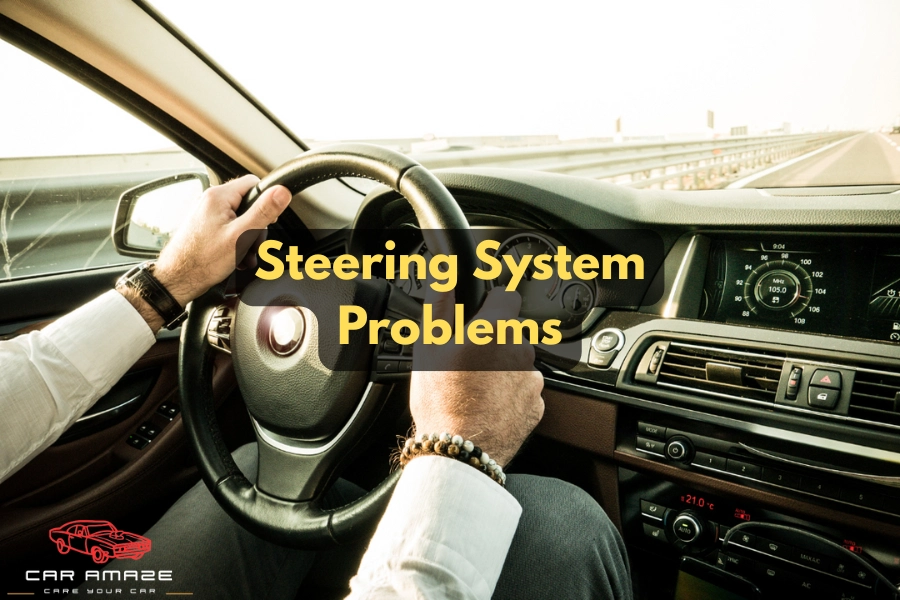
Another common reason for a car shaking while driving at high speed is a loose or damaged steering system. If the damage is less, you can fix this issue just by tightening the steering. In comparison, if the steering system components are highly damaged, replacing the steering system is the recommended solution. Here are some safety tips regarding the steering system and car shaking:
- Get the steering system inspected regularly.
- Do not ignore steering noises or stiffness.
15. Ball Joint Wear Issue
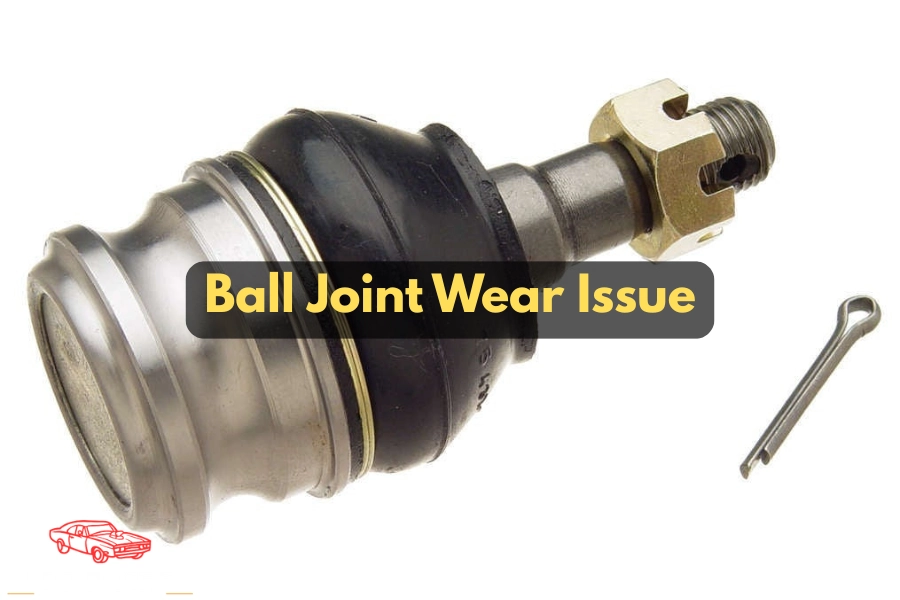
Ball joints connect the steering system to the wheels. When they wear out, the car may shake and even make clunking sounds. If the ball joints are damaged, replacing them with new ones is the recommended solution. Here are some tips to keep ball joints in good condition:
- Lubricate ball joints if serviceable.
- Get suspension checked regularly.
16. Timing Belt Issues
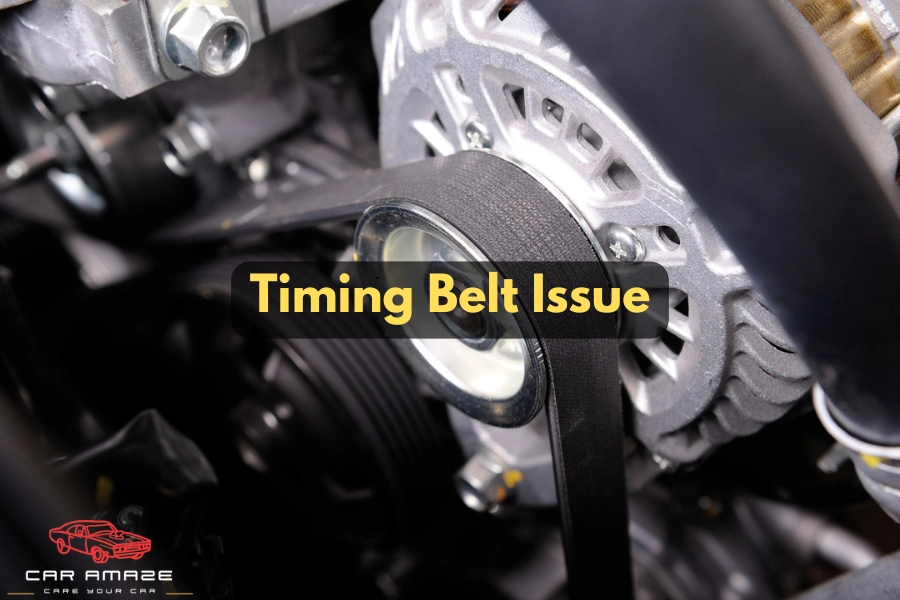
The main function of the timing belt is to keep the engine in sync. If the timing belt is damaged or loose, your car will shake while driving. Replace the damaged timing belt as soon as possible because it can even cause complete engine failure. To keep the timing belt and alternator of your car running smoothly, follow these tips:
- Follow the manufacturer’s schedule for timing belt replacement.
- Never ignore squealing noises from the engine area.
Is It Safe to Drive If Your Car Is Shaking?
No, it is not safe to drive a car that shakes at high or even low speeds. If you keep driving, the problem can get worse, more expensive, and even dangerous. Depending on the main reason for the car shaking while driving, you may face different hurdles if it is not fixed on time:
- If the shaking comes from tires or wheels, it can lead to a blowout.
- If it is from the brakes, you may not be able to stop in time.
- And if it is an engine or transmission issue, your car could stall at idle or fail on the road.
How to Prevent Car Shaking While Driving in the Future
With some precautionary measures and regular maintenance, you can keep yourself safe from shaking. Here are some of my recommended prevention tips:
Tire and Wheel Care
- Keep tire pressure at the correct level.
- Rotate tires every 5,000–7,000 miles.
- Balance and align wheels regularly.
Brake Maintenance
- Replace brake pads before they get too thin.
- Check rotors for damage.
- Do not ride brakes on downhill roads (prevents overheating).
Engine and Transmission Care
- Change spark plugs on time.
- Use good-quality fuel.
- Check transmission fluid and change it as recommended.
Suspension and Steering Protection
- Replace shocks and struts when worn.
- Inspect ball joints, bearings, and steering parts.
- Do not ignore clunking or squealing sounds.
Conclusion
If your car is shaking while driving, never take it easy. You must take quick action. Car shaking while driving is a warning sign that something is wrong with your tires, brakes, engine, transmission, or suspension. Start by checking and fixing common issues yourself, like tire pressure and wheel balance. If you are unable to find and fix the problem, visit an expert mechanic.
FAQs
How to stop a car from shaking while driving?
To stop the car from shaking, first figure out what the common cause is and then fix it. The most common cases are tire problems, unbalanced wheels, damaged or bent wheels, brake problems, warped brake rotors, engine problems, faulty spark plugs, engine and transmission issues, bad motor mounts, axle problems, driveshaft issues, bad wheel bearings, worn suspension components, steering system problems, ball joint wear, and timing belt issues. So find which one is in your case and take the recommended action as I discussed in this guide.
Is a car shaking a transmission problem?
Yes, a car shaking while driving can be due to a transmission problem. A bad transmission mount, low transmission fluid, or gear issues can make the car shake. If you are not sure about the main cause, consult with an expert mechanic.
Can bad spark plugs cause shaking?
Yes, faulty spark plugs can cause engine misfires, which make the car vibrate or shake.
Can worn tires cause a car to shake while driving?
Absolutely. Worn-out or uneven tires can make your car wobble or shake while driving.
Why is my car shaking while driving and the engine light is on?
If your car is shaking while driving and the engine light is turned on, the issue is with the engine, like a misfire, a bad ignition coil, or a fuel issue. You should get it checked immediately to prevent more damage.
Why is my car shaking while driving at low speeds?
The most common reasons for a car shaking while driving at low speed are unbalanced tires, bent wheels, or brake issues.

